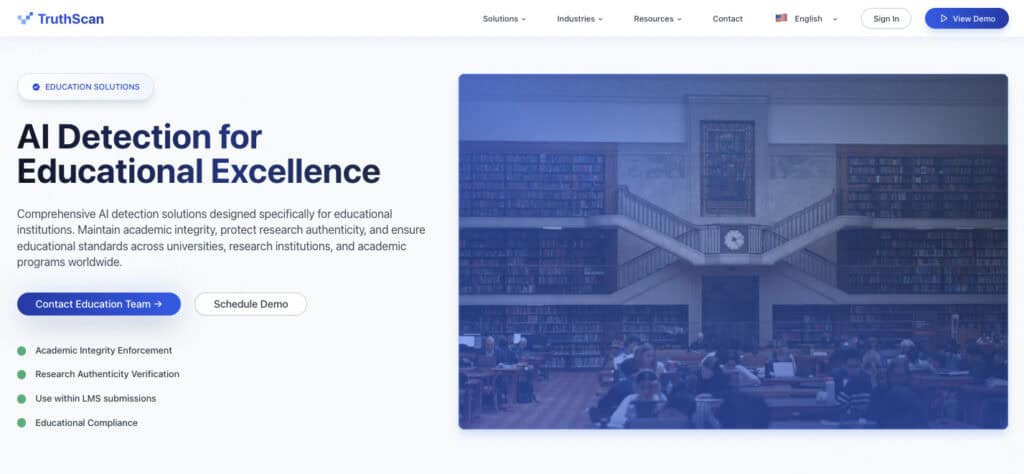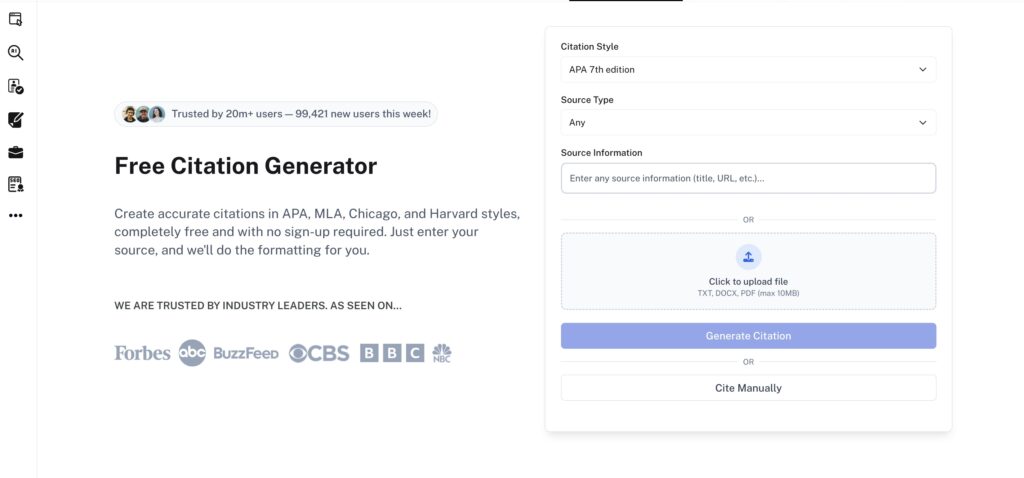Imagine being able to utilize AI to create research papers in a fraction of the time while maintaining the highest quality.
Well, it’s possible and easier than ever. But can ChatGPT write research papers for you?
Using ChatGPT to write research papers was once considered unethical as it was seen as an attempt to manipulate the system. But things have changed.
Today, there are numerous AI tools that we can use to humanize ChatGPT-generated content so that it sounds more natural and avoid algorithms designed to flag AI-generated texts.
Key Takeaways
- ChatGPT can theoretically write research papers, but its output requires significant human oversight, revision, and often “humanization” to be academically sound and undetectable by AI flagging algorithms.
- Key benefits of using ChatGPT for research papers include increased efficiency (idea generation, organization), improved accuracy (data interpretation, cross-checking), and enhanced creativity (new perspectives, hypotheses).
- A structured approach for using ChatGPT involves defining the research question, conducting a literature review, gathering/analyzing data, organizing the paper, drafting, and finally, editing and proofreading.
- To effectively use ChatGPT, users must provide clear instructions, carefully review its output for accuracy and relevance, and be prepared to extensively edit and revise the generated content to fit academic standards and personal style.
- While feasible for tasks like thesis writing, using ChatGPT demands meticulous assessment and revision to maintain academic integrity and quality.
Can ChatGPT Write Research Papers?
The merging of AI with academic research opens a new chapter in the field of education. But can ChatGPT truly be used to write research papers?
The answer to this question lies in understanding the nuanced capabilities of this AI technology.
It’s not about replacing human intellect but rather supporting human authors, offering new perspectives when tackling complex tasks to simplify the writing process.


Never Worry About AI Detecting Your Texts Again. Undetectable AI Can Help You:
- Make your AI assisted writing appear human-like.
- Bypass all major AI detection tools with just one click.
- Use AI safely and confidently in school and work.
So at the end of the day? Yes. Theoretically, ChatGPT can write research papers.
However, utilizing ChatGPT on its own without humanizing the text and revising it in a way that will have the human touch is not something you should consider doing.
Let’s dig a little deeper.
What are the Benefits of Using ChatGPT to Write Research Papers?
There are many benefits of using ChatGPT to assist you when it comes to writing a research paper.
It can’t be stressed enough that the key word here is “assist” when it comes to using ChatGPT to help you with your research paper.
But let’s discuss the benefits of having this kind of assistance.
Increased Efficiency
Time is a valuable commodity, especially in the area of academic research. ChatGPT has led to a breakthrough in time management and efficiency.
Imagine how much time you can save.
ChatGPT’s ability to quickly generate and organize ideas, collect relevant information, and structure drafts makes the often tedious process of writing academic papers a more streamlined and efficient endeavor.
This not only saves time but also allows researchers and students to focus on a deeper analysis of their research results.
Improved Accuracy
Accuracy in research writing is paramount.
Thanks to the advanced algorithms and access to a wide range of information from various databases, ChatGPT offers assistance in ensuring the accuracy of data interpretation and presentation.
By providing up-to-date references and cross-checking facts, ChatGPT acts as an additional layer of verification, reducing the likelihood of errors.
The ability to process and analyze large data sets can also help identify patterns and correlations that might be missed by the human eye, resulting in more accurate and reliable research outcomes.
To take fact-checking a step further, AI Detection for Educational Excellence powered by TruthScan is an excellent companion tool.

It’s built specifically to help students and researchers validate the credibility of their digital sources, spot misinformation, and flag questionable citations before submitting academic work.
TruthScan ensures your research holds up under scrutiny — making it a must-have for anyone who values accuracy and academic integrity.
Enhanced Creativity
One of the biggest benefits of using ChatGPT when writing academic papers is the enhancement of creativity.
ChatGPT can stimulate creative thinking by offering a unique perspective and different approaches.
It can propose new hypotheses and suggest methods that open up new possibilities for the author, pushing the boundaries of conventional academic writing.
This AI-driven creative boost is particularly beneficial in fields that thrive on innovative thinking and original approaches.
In summary, the integration of ChatGPT in research paper writing can provide significant benefits in terms of efficiency, accuracy, and creativity.
Its ability to streamline the writing process, examine data, and offer creative approaches makes it an invaluable tool in the modern academic landscape.
How to Write Research Papers Using ChatGPT

1. Define Your Research Question or Hypothesis
The first step for your research paper is to define your research question or hypothesis. This fundamental step is crucial because it sets the direction of your entire research.
ChatGPT can assist you in refining your hypothesis by providing insights on current trends, gaps in existing research, and suggesting various angles from which you can approach your topic.
This initial interaction with ChatGPT sets the tone for a focused and purpose-driven research paper.
2. Conduct Literature Review
Once you have established your hypothesis, you need to conduct a comprehensive literature search.
ChatGPT can help with this task. Its large data sets help you find relevant literature, compile research results, and identify areas that may need further research.
This AI-driven approach ensures a thorough review of existing knowledge, laying a robust foundation for your research.
Once you’ve gathered sources, citing them correctly is the next step—and it’s where most people trip up.
Our Citation Generator makes it easy. Just drop in your source link or details, and it instantly creates a polished, APA-style citation.

No formatting stress, no manual edits—just accurate, ready-to-drop-in references that keep your research clean and credible
3. Gather and Analyze Data
Data gathering and analysis are pivotal in any research paper.
ChatGPT can streamline this step by suggesting appropriate data collection methods and tools based on your hypothesis.
Furthermore, it can help with initial analysis of data and identify potential patterns or anomalies.
This function is particularly helpful when processing and interpreting large data sets because it makes data analysis more manageable and efficient.
4. Organize Your Paper
Now you need to organize all the information in a meaningful way so that your research paper is coherent and logical.
ChatGPT can aid in structuring content, suggest relevant headings and subheadings, and ensure that your arguments flow logically from one section to the next.
This AI-guided structuring helps to maintain clarity and focus, making your paper more comprehensible and impactful.
5. Draft Your Paper
Drafting the paper is where ChatGPT’s capabilities truly shine.
You can use the AI program to create drafts based on the data collected while ensuring that your writing maintains a consistent tone and style.
ChatGPT’s ability to generate ideas and draft sections of the paper can significantly expedite the writing process, allowing you to focus on the critical aspects of your research.
6. Edit and Proofread Your Paper
The final step involves editing and proofreading your academic paper, which is crucial for ensuring the quality and readability of your work.
ChatGPT can assist in this process by finding grammatical errors, suggesting improvements in sentence structure, and even checking the consistency of terminology and formatting.
This ensures that your research paper is not only informative but also presented professionally.
In conclusion, writing an academic research paper with ChatGPT requires a structured and systematic approach, from defining your research question to the final stages of editing and proofreading.
ChatGPT’s AI-driven features enhance each phase of the process, making research writing more efficient, comprehensive, and high-quality.
Explore practical examples and tips here.
Using ChatGPT Effectively to Write Research Papers
1. Provide ChatGPT with Clear Instructions
To utilize ChatGPT’s full potential when writing research papers, you need to provide the program with clear and concise instructions.
You have to formulate your requirements and expectations in such a way that the AI can understand them and react accordingly.
Whether you’re seeking assistance in brainstorming, drafting, or editing, if you provide accurate information, ChatGPT can generate more targeted responses.
Provide details about the topic, the scope of the content, the style of writing, or any particular points that need to be addressed.
Clear instructions provide guidance and enable ChatGPT to align its responses with your academic objectives.
2. Review ChatGPT’s Output Carefully
While ChatGPT can produce impressive content, you must always check the relevance and accuracy of the information provided.
Also, ensure that the content meets current academic standards and aligns with your research goals.
Additionally, you can use ChatGPT to identify areas that may need refinement or further elaboration.
It’s not about simply accepting AI-generated content, but rather about carefully reviewing the results and then integrating it thoughtfully into your research while maintaining your academic integrity.
3. Be Prepared to Edit and Revise ChatGPT’s Output
You always need to revise your work, especially when it involves AI-generated content. While ChatGPT is a powerful tool, it is not infallible.
AI content may need to be adjusted to better fit the tone, style, or specific requirements of the task.
Editing and revising could range from making minor tweaks to undertaking significant rewrites.
You must customize ChatGPT results so that they meet academic standards.
This step is crucial to ensure that the work reflects your research findings, your personal academic style, and your unique perspective.
Using ChatGPT when writing academic papers requires a mix of clear communication, critical thinking, and thoughtful revision.
By providing clear instructions, carefully reviewing the AI’s output, and being prepared to make necessary revisions, you will be able to leverage ChatGPT’s features to improve your research writing process while maintaining the essence of your academic work.
This approach ensures that the integration of AI in your research is both effective and harmonious.
Want to up your research game? Explore DataCamp’s guide on using ChatGPT responsibly.

Writing Your Thesis with ChatGPT: Is It Feasible?
Writing a thesis with ChatGPT raises an interesting question: Can the AI program handle this task with the care and accuracy required?
In summary, it is possible if you follow certain rules and know the strengths and weaknesses of ChatGPT.
You have to assess your work meticulously, formulate a good thesis, and always revise your work afterward.
Check out our AI Detector and Humanizer right in the widget below!
FAQs
How does ChatGPT contribute to the accuracy and reliability of research papers?
ChatGPT contributes to the accuracy and reliability of research by providing data-driven insights, timely information, and facts from a variety of sources.
It can assist in fact-checking, suggesting relevant literature, and identifying inconsistencies in arguments or data.
However, it should be noted that while ChatGPT is a valuable tool for enhancing accuracy, the ultimate responsibility for verifying facts and data rests with the researcher.
In what ways can ChatGPT manage complex and diverse research topics?
ChatGPT can manage complex and diverse research topics by providing a comprehensive overview of a wide range of topics.
It can generate ideas, suggest research priorities, and provide insights on various topics.
Because ChatGPT can quickly process and analyze large amounts of information, it is well suited to complex research questions as it offers new perspectives and helps researchers explore new areas or interdisciplinary approaches.
Are there any limitations to be aware of when using ChatGPT for academic writing?
Yes, there are of course limitations to using ChatGPT for academic writing.
ChatGPT may not always have access to the latest research developments or specific subject matter expertise.
Its understanding of context or subtle nuances is also limited.
AI may not be able to provide detailed in-depth analysis comparable to a human expert.
Additionally, the work could contain critical errors if you rely too heavily on ChatGPT.
Researchers should use ChatGPT as a supplementary tool, combining its outputs with their own expertise and critical thinking.
How can researchers ensure the originality of work when incorporating ChatGPT’s assistance?
To ensure originality when using ChatGPT, researchers should use the AI’s output as a starting point or a source of inspiration.
Content cannot simply be adopted. AI-generated content needs a unique approach and a fresh, human perspective.
Additionally, it’s crucial to properly cite any sources provided by ChatGPT and avoid copying text verbatim without modification.
It’s best to run a plagiarism check to help maintain the uniqueness of the work.
Is ChatGPT versatile enough to support research across various academic disciplines?
ChatGPT is versatile and can support researchers in a wide range of academic disciplines.
AI can provide information in various fields, from humanities to the sciences.
However, the depth of its knowledge and the specificity of the information it provides can vary depending on the discipline.
For highly specialized or emerging areas, additional expertise may be needed alongside ChatGPT’s assistance.
Can ChatGPT play a role in the analysis and interpretation of data in research papers?
ChatGPT can assist in analyzing and interpreting data in research papers.
It can assist in identifying patterns, suggesting analytical approaches, and providing preliminary interpretations of data.
However, it should be noted that ChatGPT is not a replacement for specialized software or the expertise of a data analyst.
Researchers should use ChatGPT as a complementary tool, complementing it with their own analytical skills and tools specific to their field of research.
Conclusion
As the field of academic research continues to evolve, ChatGPT will soon revolutionize the education sector.
Artificial intelligence heralds a new era in which AI and human intellect collaborate to achieve academic excellence.
If you plan to use ChatGPT to assist in producing your research paper, incorporating Undetectable AI’s Humanizer and Citation Generator is highly recommended.
These tools ensure your work remains authentic, properly referenced, and free from detection issues.
You need to ensure that whatever assistance you get from ChatGPT while writing your research paper doesn’t go to waste by having your paper flagged by AI detectors once it’s turned in.
Safeguard your academic integrity with Undetectable AI and TruthScan, your partners for authentic, credible research writing.
